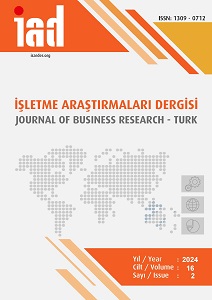Kadın Yöneticilerde Kraliçe Arı Sendromu: Late Night (Gece Kuşu) Filmi Bağlamında Çözümleme
Queen Bee Syndrome in Female Managers: Analysis in the Context of the Movie ‘Late Night’
Author(s): Beyza SargınSubject(s): Gender Studies, Organizational Psychology, Management and complex organizations, Film / Cinema / Cinematography, Socio-Economic Research
Published by: Orhan Sağçolak
Keywords: Queen Bee Syndrome; Media; Female Manager; Late Night; Film Analysis;
Summary/Abstract: Purpose – Queen Bee Syndrome is a term used to explain the negative attitude of female managers towards their female subordinates in the work environment. A woman who becomes a manager begins to show Queen Bee Syndrome characteristics and adopts masculine characteristics in order to maintain her place in the male-dominated culture. This study aims to analyze the Queen Bee Syndrome through the movie Late Night, which is about the behavior of a female manager working in the media sector towards her subordinates. Design/methodology/approach – In this study, the document analysis method, one of the qualitative research methods, was used. The collected data were divided into subcategories in accordance with the characteristics of Queen Bee Syndrome. Findings – After the analysis, it was seen that the movie Night Owl provided data regarding Queen Bee Syndrome. It has been determined that the female manager, who plays the leading role in the movie Late Night, has a negative attitude towards her female subordinates. It has been observed that female managers exhibit masculine clothing styles and behaviors due to the male-dominated mentality in the media industry in which they work. Discussion – It has been observed that the conceptual features of Queen Bee Syndrome overlap with the features of the female manager working in the media sector in the analyzed movie. Increasing the number of such studies on visual arts will provide a different visual perspective to the literature on this syndrome and will give important clues for dealing with managers with the syndrome.
Journal: İşletme Araştırmaları Dergisi
- Issue Year: 16/2024
- Issue No: 2
- Page Range: 763-777
- Page Count: 15
- Language: Turkish

